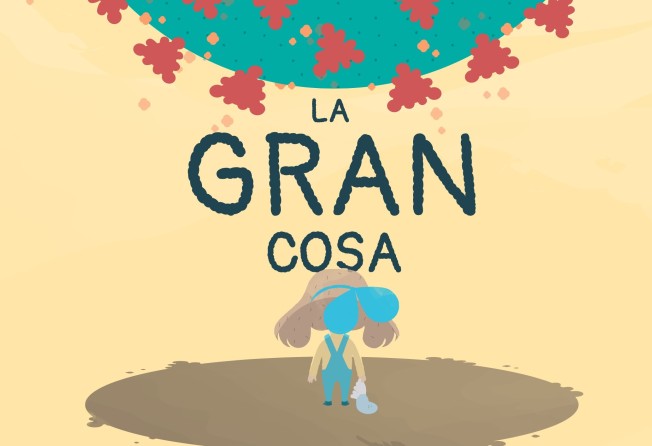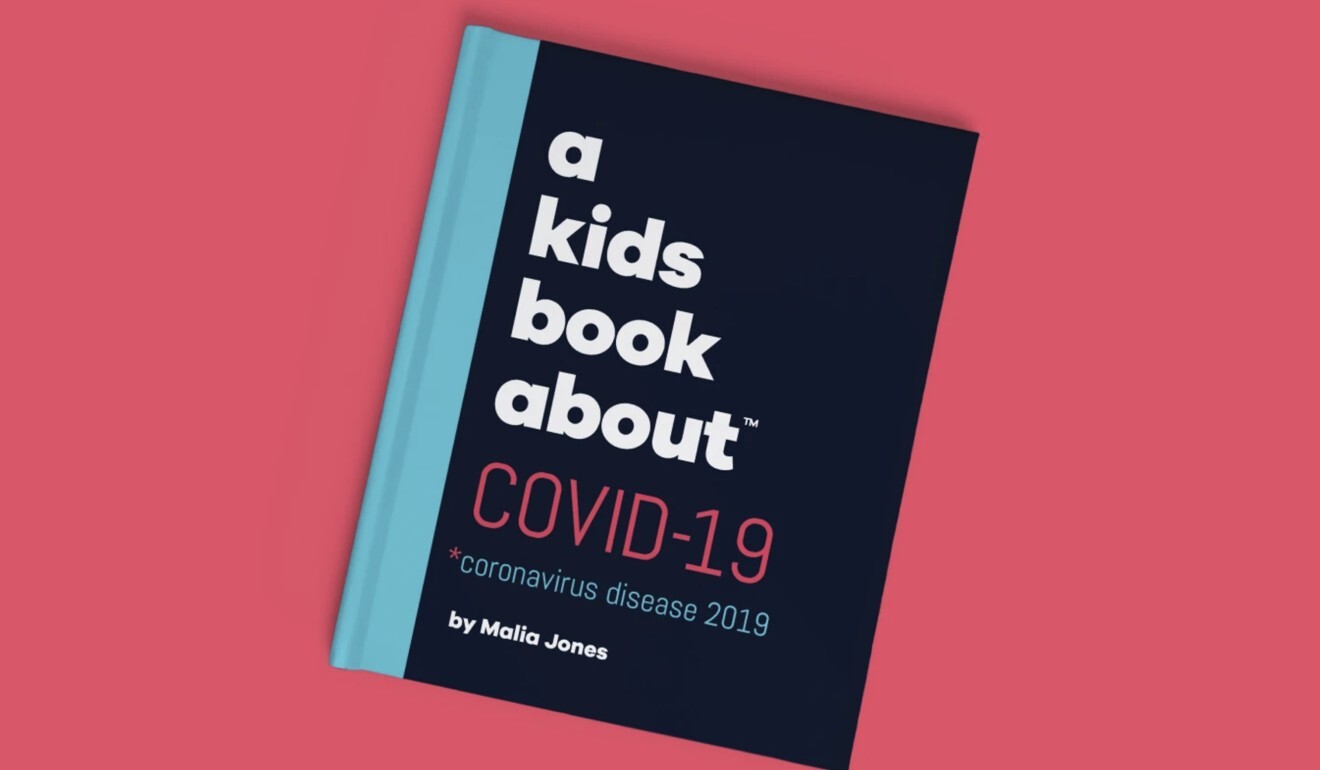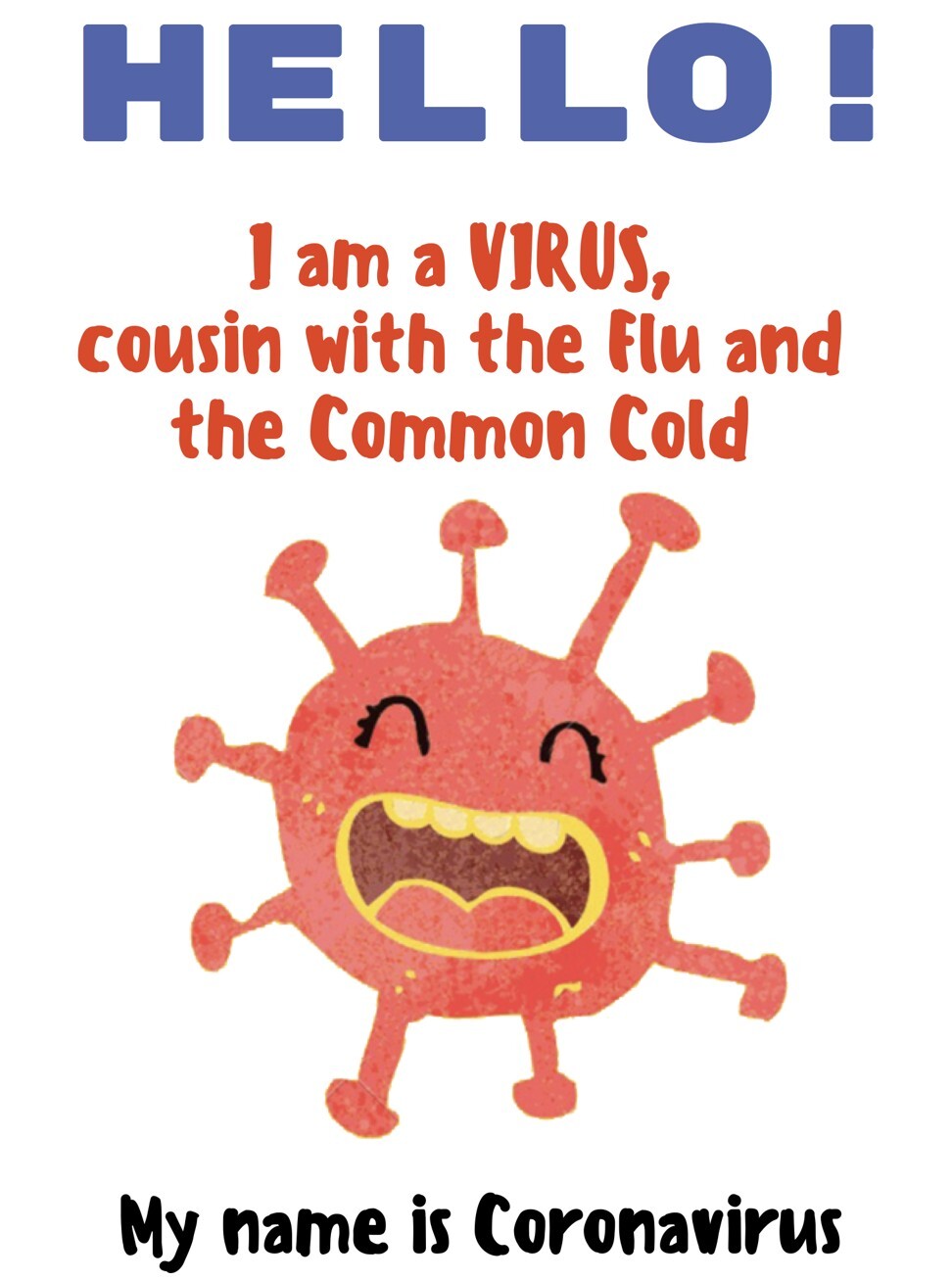
Books about coronavirus aim to ease children’s anxieties
- Help is at hand for parents with a range of pictures and stories explaining the pandemic in simple terms
- Social isolation and family worries are adding to the fears of young people in a time of uncertainty

Help is at hand for parents struggling to explain the coronavirus pandemic and ease their children’s anxieties, with a number of books available for a range of age groups.
The latest in the genre is The Big Thing , by Americans Angela Meng and Alexander Friedman, a former chief financial officer at the Gates Foundation. The book is available in English, Chinese and Spanish – with translators working on more language editions – and proceeds of e-book and print sales will go to Covid-19 charities.
The book tells the story of Bea, who is frightened by the news on television, misses her classmates and grandparents and hears her parents talking nervously about jobs, supplies and health. In her anxiety, she finds all colours have turned to grey, flowers are no longer attractive and cupcakes have lost their sweetness – until her teacher asks to look for silver linings.
Meng said she hoped to remind children growing up in unprecedented times that there was always a bright side in something dark, and to help them build resilience.
“Darkness doesn’t have to make us darker, it can make us deeper. Resilience is the antidote to fear,” she said.

Friedman said the book reflected the need in hard times for people to come together with friends and family.
“It’s like a micro version of what all these different countries need to do,” he said. “We need to all work together to stop the spread, flatten the curve, or come up with a vaccine.”
Another book – My Hero is You, How Kids Can Fight Covid-19! – was a collaboration between UN agencies and international NGOs and has been translated into nearly 40 languages. It takes children aged six to 11 on an adventure across continents to explain how to stay safe from coronavirus and manage difficult emotions in unfamiliar situations.
In Colombia, psychologist and child educator Manuela Molina Cruz designed what she calls a “Covibook”, a short, printable book in more than 20 languages for children under the age of seven which invites them to draw how they feel and gives them a basic understanding of the disease and why it is important to avoid catching it.
Also in the United States Malia Jones, a social epidemiologist at the University of Wisconsin, has written A Kid’s Book About Covid-19 – available in English and Spanish – which she hopes can serve as a starting point for parent-child discussions about the virus.
“You might not be an epidemiologist, but you are definitely the expert your kids need to lead a conversation,” she said in the book’s introduction.
British psychotherapist Noel McDermott said “identifying with characters in a book has the impact of allowing children to gain some emotional distance from the events so they can process the experience rather than being overwhelmed”.
Children were being subjected to “an almost constant diet of scary stories on the news or internet, isolation from peers with schools being closed, and from picking up on the stresses of family and parents”, he said.
But reading with their parents was fun and could help young ones to feel safer, he said.
“Having a fun activity linked to the virus and the lockdown makes those events easier to manage because mum and dad are safe, the reading together is essentially safe and so the situation with the virus becomes emotionally safe.”

McDermott said social interaction was a primary source of mood regulation and access to play with peers was central to healthy development, and children were likely to suffer “significant trauma” with the closure of schools and nurseries due to the pandemic.
Parents should stay calm, balanced and stick to facts from reliable sources when talking to their children, he said.
“[Many children] will be experiencing more vivid dreams during this time [as well as] interrupted sleep, issues around appetite and so on, which are all classic signs of distress.”
McDermott said that care givers should also listen to children and follow their lead in the conversation, instead of transferring their own fears onto them.
“It’s also equally vital that your child is given space to process any fears they have. Those fears may not be directly about the virus but about losing things that are important to them, such as contact with friends, going to parties and so on.”
In a survey of 1,800 primary schoolchildren conducted during the lockdown in Hubei province – the initial epicentre of the coronavirus outbreak – 23 per cent of youngsters showed symptoms of depression and 19 per cent of anxiety.
The results were published in the April edition ofJAMA Paediatrics, the monthly peer-reviewed journal published by the American Medical Association.
“The reduction in outdoor activities and social interaction may have been associated with an increase in children’s depressive symptoms,” it said.

